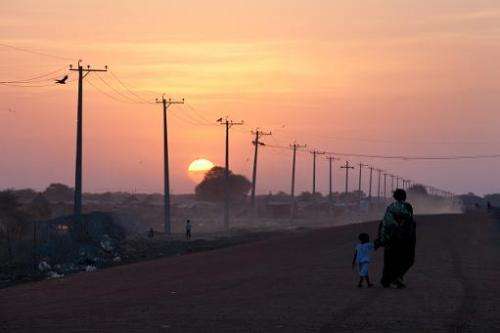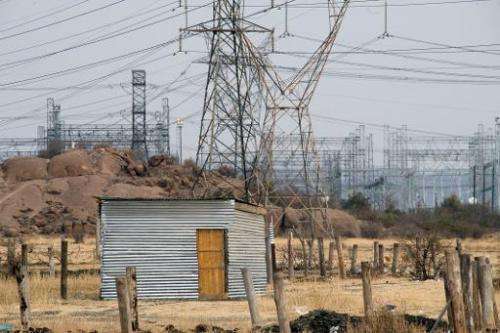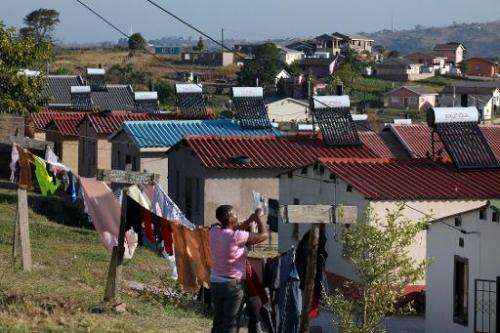One bn people without electricity 'need urgent action': Daegu meet

The fact that more than a billion people in the world live without electricity is a major obstacle to development that requires immediate and sustained action, energy experts and officials say.
Access to clean, safe energy was the focus of the final day Thursday of the triennial World Energy Congress, held in Daegu, South Korea.
"The current situation is unacceptable," said the newly-elected head of the World Energy Council (WEC), Marie-Jose Nadeau.
"This is something that is of concern to the entire planet because it involves social peace and stability," Nadeau told AFP in Daegu.
Maria van der Hoeven, the director of the International Energy Agency (IEA), said the huge number of people still without electricity were being left behind in a rapidly-changing world.
"It is an economic problem, it is an educational problem—because you can't study in the evening without light, and you can't charge a mobile phone or have access to the internet," she told AFP in an interview.
"We have been following the number of people deprived from energy for 11 years and I'm not satisfied with the progress made so far," she added.
Although the situation has improved in countries like Thailand, China, Mexico and India, Van der Hoeven said the fact that 30 percent of Indonesians were without electricity showed the scale of challenge that remained.

According to the IEA, nearly 1.5 billion people have no access to electricity, while around three billion are forced to use cooking fuels that carry a significant health risk, like wood, coal and kerosene.
"There are four million premature deaths (per year) from indoor air pollution caused by lack of energy," said Kandeh Yumkella, who heads a UN programme called "Sustainable Energy For All."
"Fighting poverty means you must solve the energy access problem," Yumkella said, stressing that schools and hospitals could not function properly without a regular supply.
Experts say there is no technical barrier to the electrification of even remote, rural areas, and that the main problems are ones of funding, management and implementation.
Vijay Iyer, director of the World Bank's Sustainable Energy Department, cited Vietnam and Tunisia as examples of countries that had successfully pushed through comprehensive electrification programmes.
"It is achievable, but it requires a massive effort," Iyer said. "It's a half-full, half-empty glass story. We have made progress on some areas but not on all."

The WEC says efforts need to be stepped up, estimating that at current rates up to 880 million people will still be without electricity by 2030 and as many as 530 million by 2050.
Yumkella favours a holistic approach that goes beyond financial handouts.
"It is not about charity, it is about economic opportunities, investing in new markets and job creation," he said.
Bunker Roy, who founded an NGO that trains women from rural India and Africa as solar-power engineers so that they can introduce electricity in isolated areas, says government policies are all too often divorced from ground realities.
"Sadly, governments have lost touch with their communities, they must listen and learn from indigenous solutions," Roy said.
© 2013 AFP




















